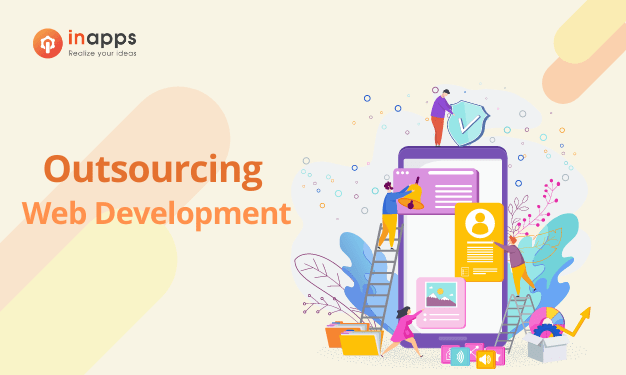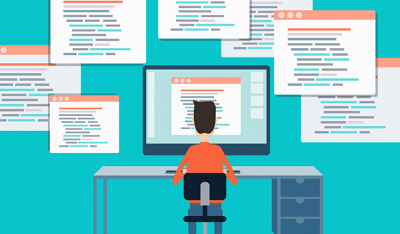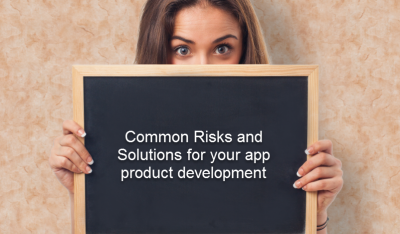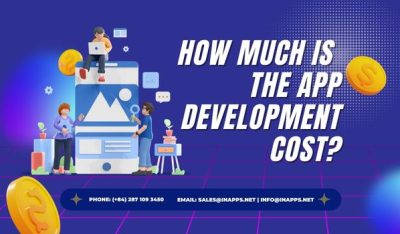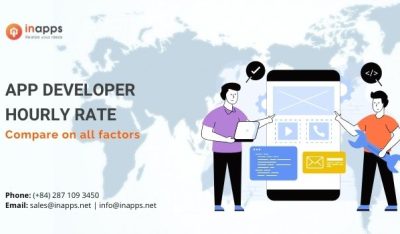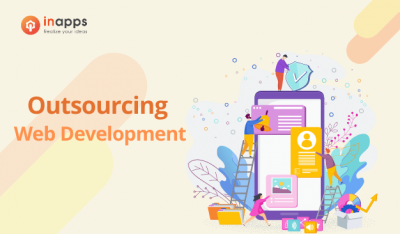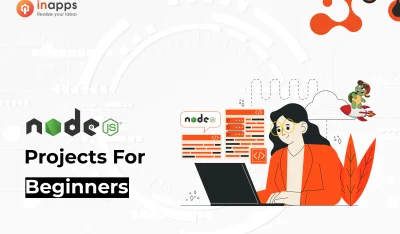- Home
- >
- Mobile apps development
- >
- TOP 5 MISTAKES MAKE YOU FAIL IN MVP DEVELOPMENT
In today’s highly competitive digital commerce world, business leaders are following the MVP development process to test the worth of their product without constant outflow of money or time.
However, to build a successful MVP, it is important to dodge a few development pitfalls that can result in an epic business failure.
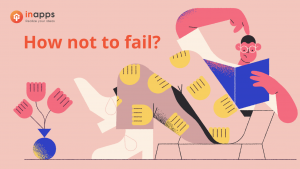
For instance, startups come up with a free sub-domain website with almost no content and call it a startup. When it fails to attract visitors, they call it a failed MVP and look for a solution to the so-called MVP problem.
However, the real problem lies in the lack of understanding of the steps involved when it comes to the MVP Development process.
Following are the necessary things involved to MVP development that you should notice so as not to fail.
1. What is MVP in Software Development?
The formal definition of MVP according to Techopedia is:
A minimum viable product (MVP) is a development technique in which a new product or website is developed with sufficient features to satisfy early adopters. The final, complete set of features is only designed and developed after considering feedback from the product’s initial users. This is the best way to start any project because it allows for agile development cycles. This means that your product gets to users faster, who then will provide crucial feedback that will then help your product become even better in the next development cycle.
2. Don’t make these 5 Mistakes
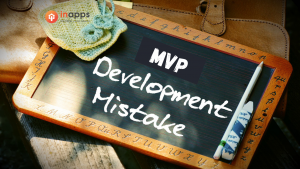
The main reason why products fail is because they don’t meet customers’ needs in a way that is better than other alternatives.
–Dan Olsen.
2.1. Ignore market research
Not knowing the market is one of the main reasons for all failures. Almost half of startups fail because their product ideas are not new and there is already a bunch of similar services on the market.
Ask yourself these questions:
• Who is this for?
• What problem am I compelled to solve?
• Is my proposed idea a more effective solution to the problem?
Starting an MVP development without having the right target audience and a compelling competitive solution that meets users’ needs, you will absolutely fail.

2.2. Overload Features
If you take too much with you, it will make it more difficult for you to move forward and reach the top.
Perfectionism is good, but sometimes striving for perfection comes at a cost. The main purpose of an MVP is to test the idea before moving to full production.
A good MVP has only a few core functions that give end-users an understanding of your product and what problems it solves. There is no need to polish the design or add more and more features to impress the audience.
It may happen that after spending the largest part of a project budget on building “a perfect MVP,” the product idea will be rejected by people. It’s like throwing money out the window.
When it comes to building an MVP, feature overload translates directly into:
- Delaying the delivery of the first version of your product,
- Having to rework product modules that failed to provide value to your clients,
- Running out of budget faster and not meeting your targets.
>> How do you know if you’ve overloaded your MVP with features?
- Your MVP takes over 3 months to build.
- There are too many large tasks in your MVP.
- You don’t know how many tasks are conducive to achieving the key objective of your MVP.
- You don’t know which features are created to meet the needs of your key user group
2.3. Inappropriate Development Method
Developing an MVP successfully is like cooking. If you intend to marinate and roast chicken and then you change your mind and decide on boiling it, you will spoil it and fail. This is the reason why some MVP developers give up halfway through the project.
There’s a way to do it better find it.
– Thomas A. Edison
Jumping directly into the process of MVP development without prior knowledge of the correct development method of building is one of the major reasons for startups giving up the project in the middle. And this is one of the major contributing factors of the statistics – Nine out of ten startups fail.
Generally, there are two approaches for MVP product development: Agile and waterfall.
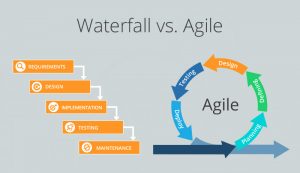
When compared to Waterfall (Traditional Method), Agile product development is far more efficient due to its potential to deliver the project at a certain time frame, offering adaptability to changing circumstances with high-quality results week after week.
2.4. Confusion Between Qualitative and Quantitative Feedback
Although having a lot of feedback might seem like a blessing when you’re just starting your business, you have to be picky about who you source it from and what you implement at the MVP stage.
• Qualitative feedback consists of findings that are associated with the user-friendliness of the features of the product/service. It directly assesses the usability of the system by helping developers to analyze the specific problematic UI elements.
• Quantitative feedback is in form of metrics that pinpoints whether the tasks were easy or difficult to perform. It indirectly assesses the usability of the design. Such feedback can be dependent upon the performance of the user on a given task –success rates, number of errors, etc.
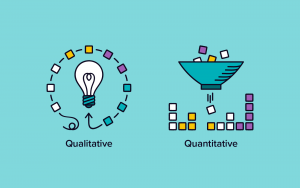
The ideal approach is the amalgamation of qualitative feedback with quantitative feedback – Triangulation Feedback to gather data for an overall accurate interpretation that looks at a variety of different factors.
This approach boosts the chances to control the threats that can result in product failure. If both the feedback methods come to a common conclusion, then the developer will be more confident with the success of the product.
2.5. Not working with The right Team of Experts
Especially if you’ve never built an MVP, it can be difficult to foresee potential pitfalls. The four mistakes we’ve pointed out above are general and apply to everyone, but every venture will come with its own challenges. Leveraging the reliable insight of a growth expert can help you navigate that unique (and uncertain) terrain that spans between product development and company growth.
Hiring an improper, inexperienced or unprofessional team can be an MVP’s downfall. What is needed is a team of designers, developers, QA engineers, and PMs in order to build an MVP. However, if this team does not have top-of-the-notch skills and proficiency, then the development stage will fail.

Here is what can happen when trusting your MVP to an unprofessional team:
- Missed deadline. Since MVPs are needed for new hot ideas to test the assumptions and find a certain amount of support among end users, they should be developed really fast and delivered to early adopters as soon as possible. A team that has never developed an MVP before will definitely miss tight deadlines and spoil it all. Timing is everything.
- Feedback interpretation issues. Once an MVP is out and you receive the first feedback from users, you need to adjust the product rapidly or even change the entire strategy. A less experienced team will most likely face problems with the interpretation of feedback to make proper corrections and deliver the next product version.
3. Who are Experts in MVP Development
InApps Technology offers end-to-end MVP app development solutions , from concept and strategy to design, implementation and support, helping you achieve your business goals and reduce the time to launch.
Our senior developers and consultants are experts in their technical domain. They can guide you in selecting the right technology platform and take your innovation to the next level.
We not only follow the best practices and latest development techniques, but also provide recommendations on how to meet your vision at the application level.
Our Agile and Lean development results in a very effective development cycle including:
- Discovery meeting to discuss and analyse your product ideas or development needs
- Prototyping phase (if required)
- Confirmation of priority use cases, feature list and product backlog creation
- Delivering ready-to-test and deployment functions in each sprint
>> You can have a demo MVP to pitch investors within 3 weeks with all essential features and design.
WHY INAPPS?
Owning a Tech Talent Hub with 5–10 year-experienced developers and engineers, InApps Technology is proud to give 100% satisfaction and trust to clients on their projects.
- Reduce your cost up to 70% – Guarantee the same or higher quality
- Fast solving-problem & supporting your end-users
- 80% of developers are good at English communication
- 90% of software developers have +5 years of experience
- High-level of Tech skills — Talented workforce from US, Australia, Northern Europe or Japan
- Transparency and Predictability for long-term cooperation
- Latest Development Methodologies & Diverse Industry Experiences
Let’s create the next big thing together!
Coming together is a beginning. Keeping together is progress. Working together is success.




